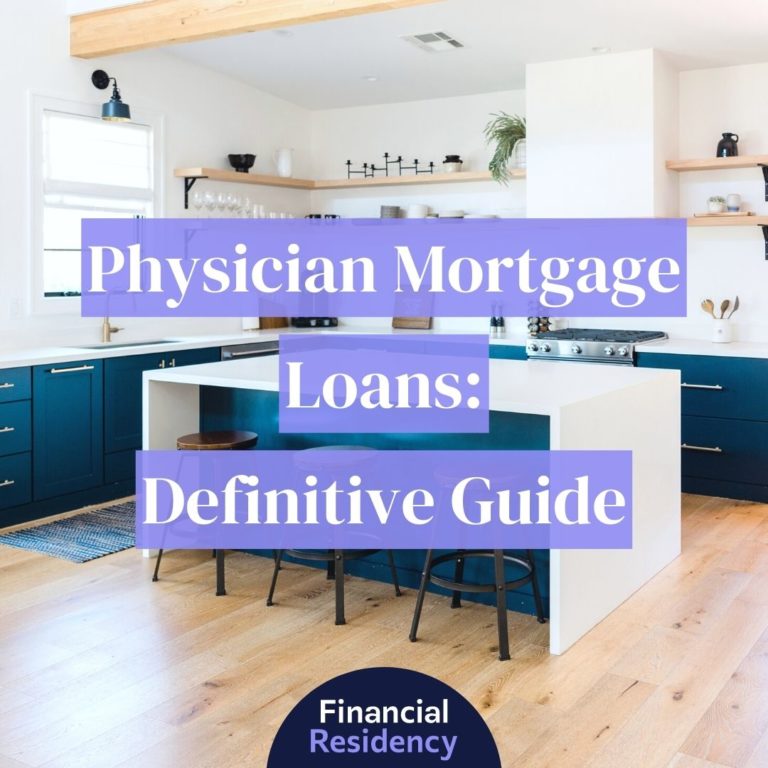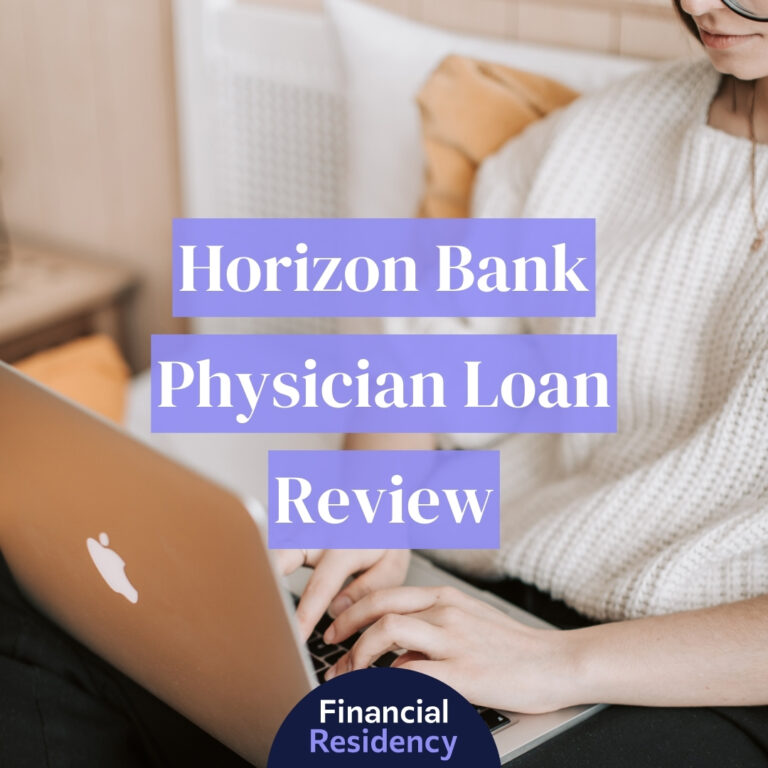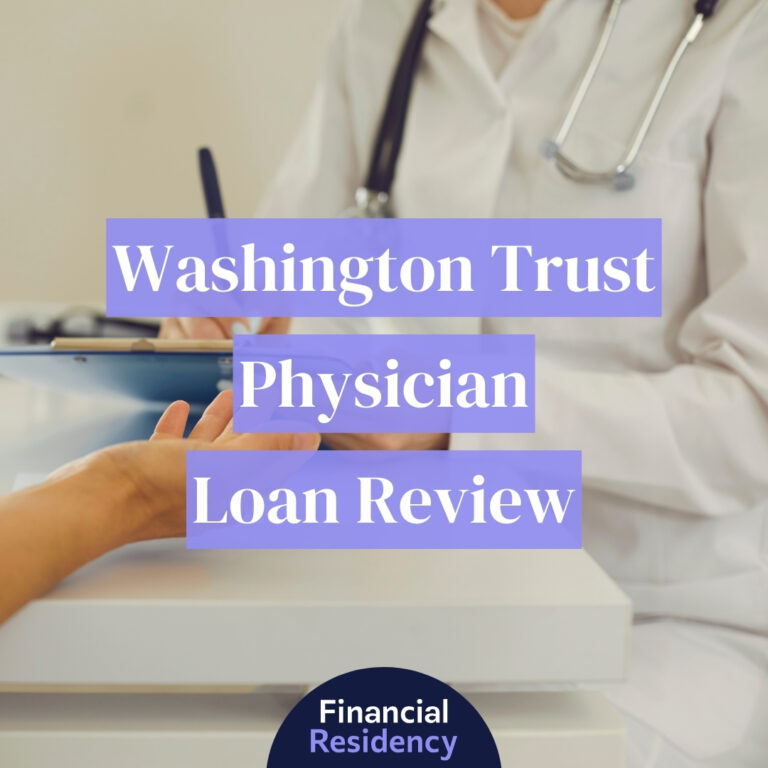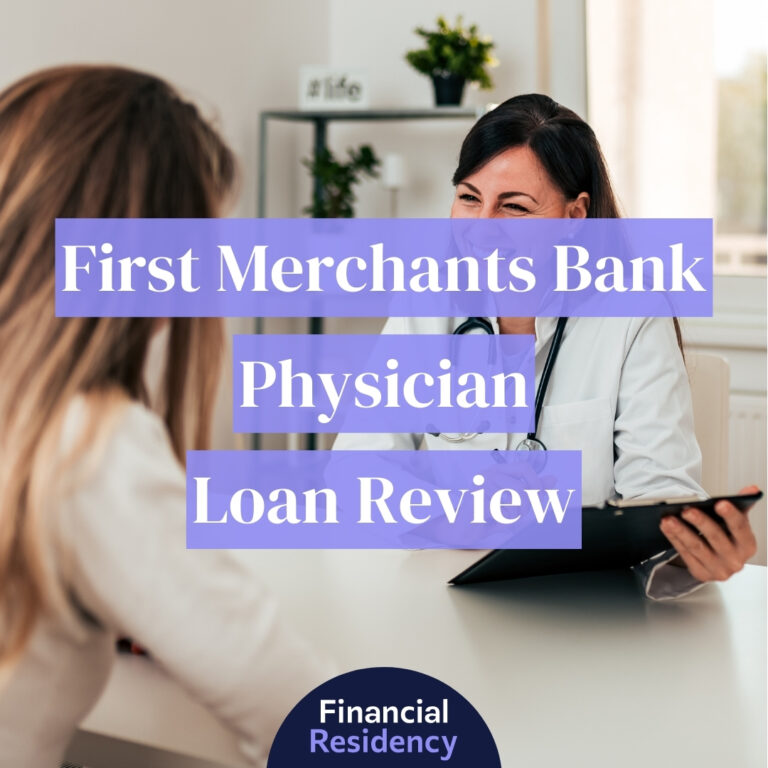The best physician mortgage loans in South Dakota enable medical doctors and other highly sought-after healthcare professionals to pursue homeownership in the Mount Rushmore State.
There are about 2,100 practicing physicians in South Dakota, but much of the state is still a federally designated health professional shortage area, which means there is an abundant need for qualified healthcare providers to care for the medically underserved.
South Dakota offers its residents an idyllic lifestyle for someone who wants to enjoy nature and the beauty of the Great Plains. From the Black Hills to the Badlands, from Sioux Falls to Rapid City, South Dakota’s natural scenery is seemingly never-ending––not to mention the beautiful lakes and rivers.
If you’re ready to find the best physician loans in South Dakota for you and your family, then turn to one of the trusted mortgage lenders we’ve vetted and researched.
9 Best South Dakota Physician Home Loan Lenders
Here are the top physician mortgage loan lenders in SD:
- BMO Bank
- Bank of America
- Citizens Bank
- Evolve Bank & Trust
- First National Bank of Omaha (FNBO)
- Flagstar Bank
- Huntington Bank
- NEO Home Loans
- U.S. Bank
Discover The Best Lenders in South Dakota Answer just a few questions about your career, where you're buying, and how much you want to borrow. Our service will then show you the exact programs you're eligible for from vetted physician loan specialists who will guide you through every step of the process – obligation-free!
1. BMO Bank
- BBB Grade: A+
- JD Power Score: 653
BMO Bank offers its physician loan program to licensed medical professionals at any stage of their careers. The following medical designations are included:
- MD (Medical Doctor)
- DO (Doctor of Osteopathic Medicine)
- DDS (Doctor of Dental Surgery)
- DMD (Doctor of Dental Medicine)
Residents and fellows are also eligible. Loans may be used to purchase a new home or rate/term refinance an existing home that is used as a primary residence. Eligible property types include duplexes, single-family homes, condominiums, and townhouses.
The program doesn’t have an age limit, but medical professionals who have been practicing for more than 10 years will be required to put 10% down regardless of the loan amount.
Medical professionals who are still within the first 10 years of their careers can qualify for 95% financing on loans up to $1.5 million or 90% financing on loans up to $2 million. All down payment options exclude private mortgage insurance (PMI).
Student loan debt will also be considered differently because the underwriting team has flexible debt-to-income (DTI) calculating guidelines.
Borrowers who don’t have sufficient income history can use a residency agreement or employment contract to qualify. Employment must start within 90 days of closing.
All standard fixed and adjustable-rate mortgage products are available through this loan program.
Borrowers who open a BMO Bank account and enroll in AutoPay can qualify for additional closing cost discounts.
2. Bank of America
- BBB Grade: A+
- JD Power Score: 628
Bank of America offers doctor loans for licensed and practicing medical professionals in South Dakota. The following medical degrees are eligible:
- MD
- DO
- DDS
- DMD
- OD (Optometrist)
- DPM (Podiatrist)
Medical residents and fellows who are currently employed can also qualify for the program as well. Researchers and professors are not included.
Borrowers can qualify for mortgages up to $850,000 for just a 3% down payment, mortgages up to $1 million for a 5% down payment, mortgages up to $1.5 million for a 10% down payment, or mortgages up to $2 million for a 15% down payment.
All mortgages under the program waive PMI requirements. Underwriters will also be more relaxed on deferred student loan debt when calculating the DTI ratio, but these exceptions will be made on a case-by-case basis.
Medical students and new doctors who are about to start their jobs can use an employment contract to qualify as long as they will be salaried.
A 700 minimum credit score is recommended. Borrowers will also need to demonstrate 4–6 months of cash reserves depending on the loan amount and borrower’s credit profile.
3. Citizens Bank
- BBB Grade: B+
- JD Power Score: 653
Citizens Bank’s physician mortgage loan program is open to residents, physicians, and dentists within the first 10 years of their careers. Borrowers must hold an MD, DO, DDS, or DMD degree to qualify.
Loans may be used exclusively for the purchase or refinance of a primary residence, but construction loans are also available. Cash-out refinances are also an option for existing homeowners with sufficient home equity.
Borrowers can qualify for several down payment options; all of which exclude PMI. The lowest down payment option is 5% of the home’s purchase price on loans up to $850,000. A 10% down payment can secure loans up to $1 million. The program maxes out at $1.5 million with a 15% down payment.
Student loan debt deferred for 12 months or more won’t be factored into the credit approval process. Borrowers on income-driven repayment plans can use their reduced monthly payments as well.
4. Evolve Bank & Trust
- BBB Grade: B
- JD Power Score: N/A
Evolve Bank & Trust goes a step further than other physician loan programs by including other medical professionals outside the typical medical doctors and dentists. The following medical professionals, including residents and fellows, are included:
- MD
- DO
- DDS
- DMD
- PA (Physician Assistant)
- NP (Nurse Practitioner)
- DVM (Veterinarian)
- CRNA (Nurse Anesthetist)
- DC (Chiropractor)
- OD
- DPM
- PharmD/RPH (Pharmacist)
- Clinical Nurse Specialist
All borrowers must be within the first 10 years of their careers.
Loans may be used to purchase or refinance 1-4 unit family homes and condominiums, but construction financing for a new build is available.
The program provides 100% financing on loans up to $1 million, 95% financing on loans up to $1.25 million, 90% financing on loans up to $1.5 million, and 85% financing on loans up to $2 million. In some cases, the program will provide more than $2 million in financing to borrowers with sufficient income and collateral.
The underwriting team is dedicated to processing physician mortgages and they will make exceptions on an individual basis.
The program will work with aggressive DTI ratios, lower credit scores than its competitors, and future employment contracts for borrowers who have not yet started working.
There are cash reserve requirements but gift funds and non-occupant co-signers are allowed. Borrowers may also be able to access closing cost discounts.
5. First National Bank of Omaha (FNBO)
- BBB Grade: A+
- JD Power Score: N/A
First National Bank of Omaha (FNBO) offers special financing options to medical professionals and other high-income earners in South Dakota.
The following designations are eligible:
- MD
- DO
- DDS
- DMD
- DVM
- CRNA
- NP
- PA
- PharmD
- CPA (Certified Public Accountant)
- CFA (Certified Financial Advisor)
- JD (Attorney)
The program has a maximum loan amount of $1.5 million and all down payment options exclude PMI.
Borrowers can qualify for 0% down payments on loans up to $850,000, 5% down payments on loans up to $1.25 million, or 10% down payments on loans up to $1.5 million.
Loans may be used to purchase a new home or refinance an existing one. FBNO bundles the cost of appraisal into refinancing, so there are no out-of-pocket costs.
All borrowers will be required to have a 720 minimum credit score. FBNO offers 30-year fixed-rate mortgage options as well as adjustable-rate mortgages.
Employment contracts will be accepted, but they need to be fully executed with no contingencies. Minimum reserves are also required but the specifics of that will come down to the credit profile, down payment, and loan amount.
6. Flagstar Bank
- BBB Grade: NR
- JD Power Score: 625
Flagstar Bank is another physician mortgage loan provider that includes professionals outside the healthcare sector. Borrowers must be within the first 10 years of their careers and hold one of the following degrees to qualify:
- Medical Resident (Educational License)
- MD
- DDS
- DMD
- OD
- PharmD
- DPM
- DO
- PA
- RN
- CRNA
- NP
- Clinical Nurse Specialist
- ATP Pilot
- CPA
- JD
- DVM
Borrowers with a 720 minimum credit score can qualify for 100% financing on loans up to $1 million, but there are low down payment options on loans up to $1.5 million. All borrowers must be first-time homeowners or have not purchased a home in the last three years.
There are minimum reserve requirements, but interested-party contributions are accepted.
Unlike other physician loan programs on this list, Flagstar Bank’s Professional Loans can only be structured as adjustable-rate mortgages (ARMs). ARMs begin with an introductory fixed interest rate period that later resets to the current market rate.
The introductory period can be 60, 84, and 120 months after which the interest rate will reset at six-month intervals.
Loans may be used to purchase or rate/term refinance a single-family home, condominium, or townhouse.
7. Huntington Bank
- BBB Grade: A+
- JD Power Score: 603
Huntington Bank extends its doctor loan program to physicians, dentists, and veterinarians with sufficient income, active employment, and cash reserves. Borrowers must have one of the following degrees to qualify:
- MD
- DO
- DDS
- DVM
- DDS
Like other physician loan programs, the minimum reserves will depend on the loan amount.
Borrowers can secure loans up to $1 million without a down payment, but loans up to $1.25 million require a 5% down payment. Loans up to $2 million require a 10% down payment.
There is no PMI or prepayment penalty.
The program is limited to the purchase or refinance of a primary residence. Borrowers may cash out refinance up to the maximum amount of $250,000.
The maximum DTI ratio Huntington Bank will work with is 50%, which is more generous than the typical 43% accepted by conventional lenders.
The program works with borrowers with a range of credit scores, but the best financing terms are reserved for higher credit scores. It will work with credit scores as low as 680, but a 700 credit is in the best position to secure 100% financing.
Borrowers can choose from fixed and adjustable-rate mortgage options.
8. NEO Home Loans
- BBB Grade: A+
- JD Power Score: N/A
NEO Home Loans offers its specially designed physician loan program to interns, residents, fellows, and practicing physicians at any stage in their careers. The following medical degrees are eligible:
- MD
- DO
- DMD
- DDS
- RPH/PharmD
- DC
- DVM
- OD
- DPM
- DCH (Diploma of Child Health)
J-1 visa holders are also eligible for the program. Like other physician loan programs, the underwriting team will be flexible with student loan debt so that it’s easier to qualify.
Borrowers can qualify for 100% financing on loans up to $1 million or 95% financing on loans up to $2 million. Both down payment options exclude PMI.
Loans may be used to purchase or refinance a single-family home or duplex used as a primary residence. Borrowers may use gift funds toward down payment costs.
Medical professionals who have a signed employment contract can use that as proof of earning potential.
9. U.S. Bank
- BBB Grade: A-
- JD Power Score: 686
U.S. Bank’s physician loan program is limited to medical doctors and doctors of osteopathic medicine, but residents and fellows are eligible. The program will extend up to $2.5 million with down payment options as low as 5%. PMI is not required.
Loans up to $1 million require a 5% down payment, which is the lowest option U.S. Bank offers. It does not offer 100% financing. Loans up to $1.5 million require a 10% down payment and loans up to $2 million require a 15% down payment.
All borrowers are required to have a 710 minimum credit score. While many of its competitors will exclude all student loan debt, U.S. Bank handles it differently.
For borrowers in deferment, the underwriting team will use 2% of the total student loan balance.
How Physician Mortgage Loans Work in South Dakota
Physician mortgage loans work by providing medical professionals, who may be marginalized by the requirements of conventional mortgage loans, a viable path to homeownership and competitive refinancing options.
Early-career medical professionals, particularly doctors, are often saddled with substantial student loan debt right after graduation. While they’ve devoted years to training for the healthcare profession––working long hours and studying late into the night––their peers have been building a verifiable income history and saving for a down payment.
Physician mortgage loan officers are intimately aware of these challenges and they clear the way for highly qualified professionals to purchase a home as soon as they are ready to.
They’re flexible because medical professionals are likely to realize higher earning potential than the average American and building a relationship early on can attract more business to the bank in the long term.
Understanding of Student Loan Debt
Physician mortgage loans are understanding of student loan debt by often excluding deferred payments. Other lenders will use the monthly payment amount for borrowers on an income-driven repayment program and it’s not uncommon for lenders to use a small fraction of the total loan balance to make it easier to qualify.
Lenient with Employment History
Instead of the two years of employment history required by conventional mortgages, doctor mortgage loans will accept future-dated employment contracts for income verification. The contract must outline a sufficient base salary and start date within 90 days of the closing date.
Accepting employment contracts and residency agreements allows incoming residents and new doctors to purchase a home and settle into their communities before starting work.
Lenient Down Payment & PMI Requirements
Physician loans also make homeownership more accessible for medical professionals by minimizing the required down payment and subsequent PMI requirements.
Private mortgage insurance is an additional fee required by conventional mortgage lenders when the borrower holds less than 20% equity. Physician loans waive this requirement, which can save borrowers thousands of dollars throughout the loan term.
Physician loans provide 85–100% financing on loans up to $1.5 million, but the actual down payment requirements will come down to the loan amount and the borrowers’ credit background.
Limited to Owner-Occupied Residence
It’s important to note that while physician mortgage lenders can be more lenient than conventional mortgages in a lot of ways, there are some ways these loan programs can be more restrictive. For example, most physician mortgage loans are only available for owner-occupied primary residences.
Higher Credit Score Requirements
Physician loan programs also have a higher credit score requirement than conventional loans and government-sponsored mortgage programs, like FHA and VA loans.
Pros and Cons
Home loans are a major financial commitment, which means home buyers need to carefully consider the pros and cons before making their final decision.
We’ve prepared a few notable advantages and disadvantages for borrowers to consider so they can decide if physician loans in South Dakota are the right financing option for their needs.
Pros
- No PMI: Physician mortgage loans don’t require private mortgage insurance, regardless of the down payment amount.
- Experienced loan officers: Physician mortgage programs have knowledgeable loan officers who are already familiar with the common obstacles healthcare professionals face when trying to purchase a home.
- Can be used to refinance: Doctor mortgages can be used to rate/term or cash-out refinance a primary residence a qualified medical professional already owns.
- Flexible debt-to-income ratio calculations: Physician loan underwriting is more flexible with student loan debt when calculating the DTI ratio, which can make it easier to qualify.
- Buy with an employment contract: Medical professionals who have accepted an employment contract but have yet to start working full-time can use it as proof of future income. The contract must specify a start date within 90 days of closing.
- Low down payment options: Physician loan programs have lower down payment options than conventional mortgages. Depending on the loan amount, borrowers have access to 85–100% financing with PMI.
- High maximum loan limit: Doctor mortgage lenders extend larger loan amounts than conventional loans. Borrowers can secure millions of dollars for the purchase or refinance of their dream home.
Cons
- Higher credit score requirement: Many doctor loan programs require a 700 minimum credit score, but some programs have a higher threshold for 100% financing. Some lenders may work with borrowers with a lower credit score if they can afford a larger down payment.
- Primary residence restrictions: Most physician mortgages are reserved for the purchase or refinance of an owner-occupied primary residence.
- Large monthly payments: Due to the lower down payment and higher loan limit, physician mortgage borrowers will have to budget for a large monthly payment.
- Varying eligibility terms: There isn’t a standard list of eligible healthcare professionals for all physician loans in South Dakota. Some programs are more inclusive than others.
Frequently Asked Questions
How much does it cost to get a physician loan?
The cost to get a physician loan depends on the loan amount, current interest rate, and total closing costs. Getting pre-approved for a mortgage can help you have a better idea of what to expect through the home-buying process.
What is the default rate for physician loans?
Physician loans have a default rate of just 1%, significantly lower than the 10% default rate of the general public. As such, physicians and other healthcare professionals are seen as a lower risk to lenders, which makes them more willing to be flexible with the qualifying terms.
What are the advantages of physician loans?
The advantages of physician loans include lower down payment options, no PMI requirements, and flexible considerations for borrowers with elevated DTI ratios due to significant student loan balances.
While conventional mortgages often require a 20% down payment to avoid PMI and a DTI ratio of 43% or less, physician loan programs make it easier for early-career medical professionals to pursue homeownership.
What is the average interest rate on a physician loan?
The average interest rate on a physician loan is usually 0.5% higher than current conventional mortgage rates. At the beginning of 2023, the conventional mortgage interest rate was roughly 6%, while physician mortgage loans sat closer to 6.5%.
However, interest rates are highly personal, so it can be a good idea to shop around for the best interest rate. In general, a 700 minimum credit score puts borrowers in the best position to qualify for favorable loan terms.
Who is a Physician Loan in South Dakota Best For?
Are you feeling stuck on whether or not you’re the right fit for a physician loan in South Dakota? We’ve prepared a few example scenarios that stand to benefit the most from a physician mortgage program.
If you identify with any of the following examples, we recommend connecting with a loan officer to discuss your financing options.
1. Private practice owner
Private practice owners are business operators, meaning substantial overhead expenses and start-up costs exist. In the early days, these expenses often eat into the owner’s profits, which can make it much more challenging to save for a down payment or pay monthly PMI.
Physician loan programs allow private practice owners to purchase or refinance their homes without sacrificing their businesses. Doctor loans have lower down payment requirements and no PMI, which allows borrowers to keep money within their business––killing two birds with one stone.
2. Medical resident with a lot of student loan debt
Medical school is expensive. One of the biggest barriers early-career medical professionals face on their path to homeownership is student loan debt relative to their current income.
Medical residents start their careers by making much less than they will by the time they reach their full-earning potential. They are also more likely to access student loan forgiveness by working in the non-profit sector.
For this reason, lenders see them as having a lower risk of default and they’re more willing to make exceptions for student loan debt when calculating the DTI ratio.
Deferred student loan payments are the most likely to be excluded, but some doctor loans will use the monthly payment amount for borrowers on an income-driven loan repayment program.
3. Nurse practitioner who wants to invest
Despite the name of the loan program, doctor loans aren’t always exclusive to medical doctors.
More inclusive physician loan programs can be a great financing option for nurse practitioners, physician assistants, and other advanced-degree health professionals who want to make sure they have enough money left over each month to make sustainable investments.
Investing is an important part of retirement planning and saving for the future.
Physician loan programs can make it possible for medical professionals to continue investing by reducing the down payment requirement and ongoing burden of PMI.
Moving to a Different State?
Click on the state you are moving to and get the best physician mortgage loan lenders in that state:
Learn more about physician home loans.




